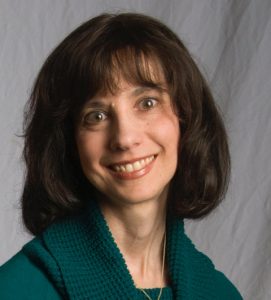 We recognized University of Houston Clear Lake as one of the Top 20 Best Schools Offering Applied Behavior Analyst Master’s Programs, adding them to our list of top recommendations for students in the area.
We recognized University of Houston Clear Lake as one of the Top 20 Best Schools Offering Applied Behavior Analyst Master’s Programs, adding them to our list of top recommendations for students in the area.
We were excited to hear from Dorothea C. Lerman, Ph.D, BCBA-D, a faculty member at University of Houston Clear Lake who took the time to answer a few questions about how the school works to create a great student experience that helps prepare graduates for a career in applied behavior analysis.
University of Houston Clear Lake Programs:
- M.A. in Behavior Analysis
 Professor/Faculty Name: Dorothea C. Lerman, Ph.D, BCBA-D
Professor/Faculty Name: Dorothea C. Lerman, Ph.D, BCBA-D
Tell us about the types of students you see come through your program. Are you seeing more non-traditional students and career changers coming from other fields?
Dorothea: The majority of our students come from undergraduate programs where they completed coursework and practicum experiences in applied behavior analysis. However, we have been seeing more teachers interested in returning to graduate school to become BCBAs.
What areas of practice are you seeing graduates going into? Do they tend to find jobs in the local school districts or more often join private practices?
Dorothea: The majority of our graduates are taking jobs at private therapy clinics and agencies. Some of our graduates seek employment in local school districts. With 54 school districts in Houston, we are seeing more demand for school-based BCBAs.
What are some of the things you love most about the ABA program at your university – the kind of things you’d like future students to know about as they consider their options?
Dorothea: We are so fortunate to have a lot of funded practica experiences for students, enabling them to get a wide variety of supervised experiences prior to graduation. Students have the opportunity to work with individuals across the life span and with a variety of targets (e.g., severe behavior, verbal behavior, life skills, vocational skills) and in a variety of settings (clinic, home, hospital). They have opportunities to gain extensive experience training caregivers, staff, parents, and teachers. The three faculty also are passionate about teaching and are active researchers in the field.
What do you feel are the most pressing issues in ABA today, and how does the program at your school prepare graduates to address these issues?
Dorothea: I feel that many BCBAs are entering the field without an adequate diversity of training and experiences. For example, some BCBAs have never conducted a functional analysis, developed behavior intervention plans, or received training or experience in how to supervise or manage staff. Our three-year program is specifically designed to give students a well-rounded experience.
What kind of integrated coursework can students expect during the MA in Behavior Analysis program?
Dorothea: Our students begin with ethics and basic concepts courses. Next, they take research methods and assessment courses to correspond with the development of their required research project and practicum activities. In their second and third years, they take more advanced courses in the principles (e.g., conceptualizations, verbal behavior) and procedures (e.g., behavioral interventions, staff training and management) of ABA.
How does the Behavior Analysis Certificate program help elevate students professionally?
Dorothea: The ABA Certificate program is designed for applicants who already have a master’s degree in a related area and some experience in the field. It enables them to obtain the coursework and supervised experience needed to sit for the BCBA exam without having to obtain another master’s degree.
Could you tell us about the role the school’s Center for Autism and Developmental Disabilities plays in the behavior analysis programs?
Dorothea: The Center provides a large number of paid practicum experiences for students. Nearly all of the program’s research and clinical work are conducted through the Center. The Center currently has 10 programs.
Please feel free to add anything else you would like potential students to know about your program that separates you from the field or that would be good for them to consider before choosing a program.
UHCL’s rigorous program is nationally recognized as one of the top programs in the field. We believe that the requirements to sit for the BCBA exam represent minimum standards. We strive to ensure that our students graduate with the competencies needed to perform effectively for their clients, not just meet the minimum standards. We encourage students to pursue their own clinical and research interests in a supportive environment.
Check out our full interview series here to see what other professors and faculty are saying about their ABA programs.





